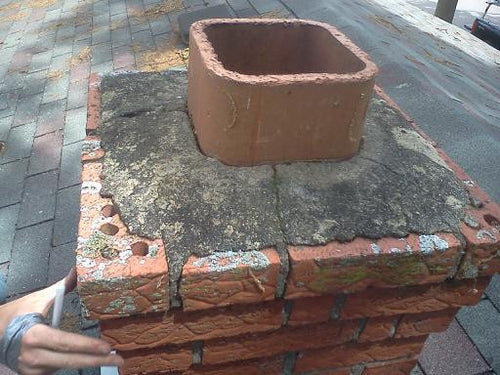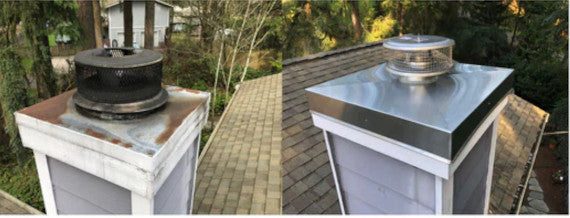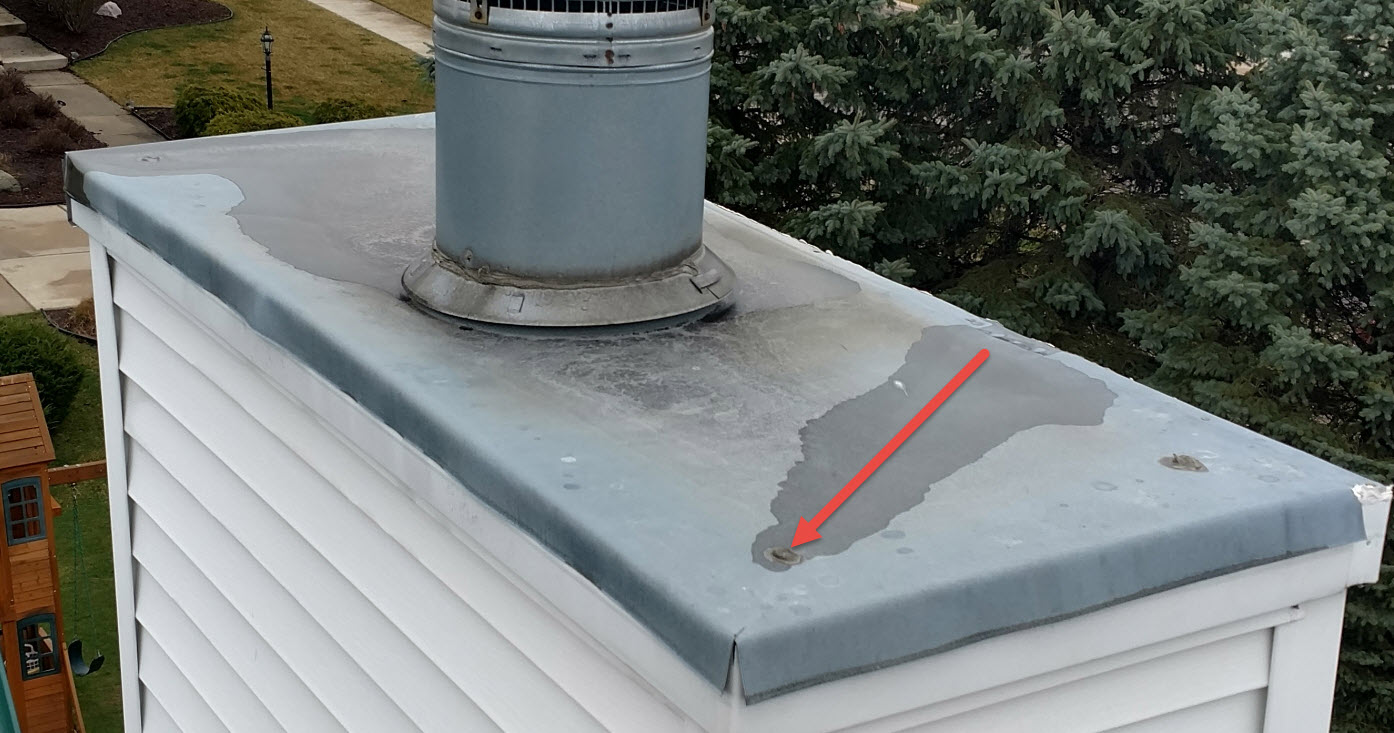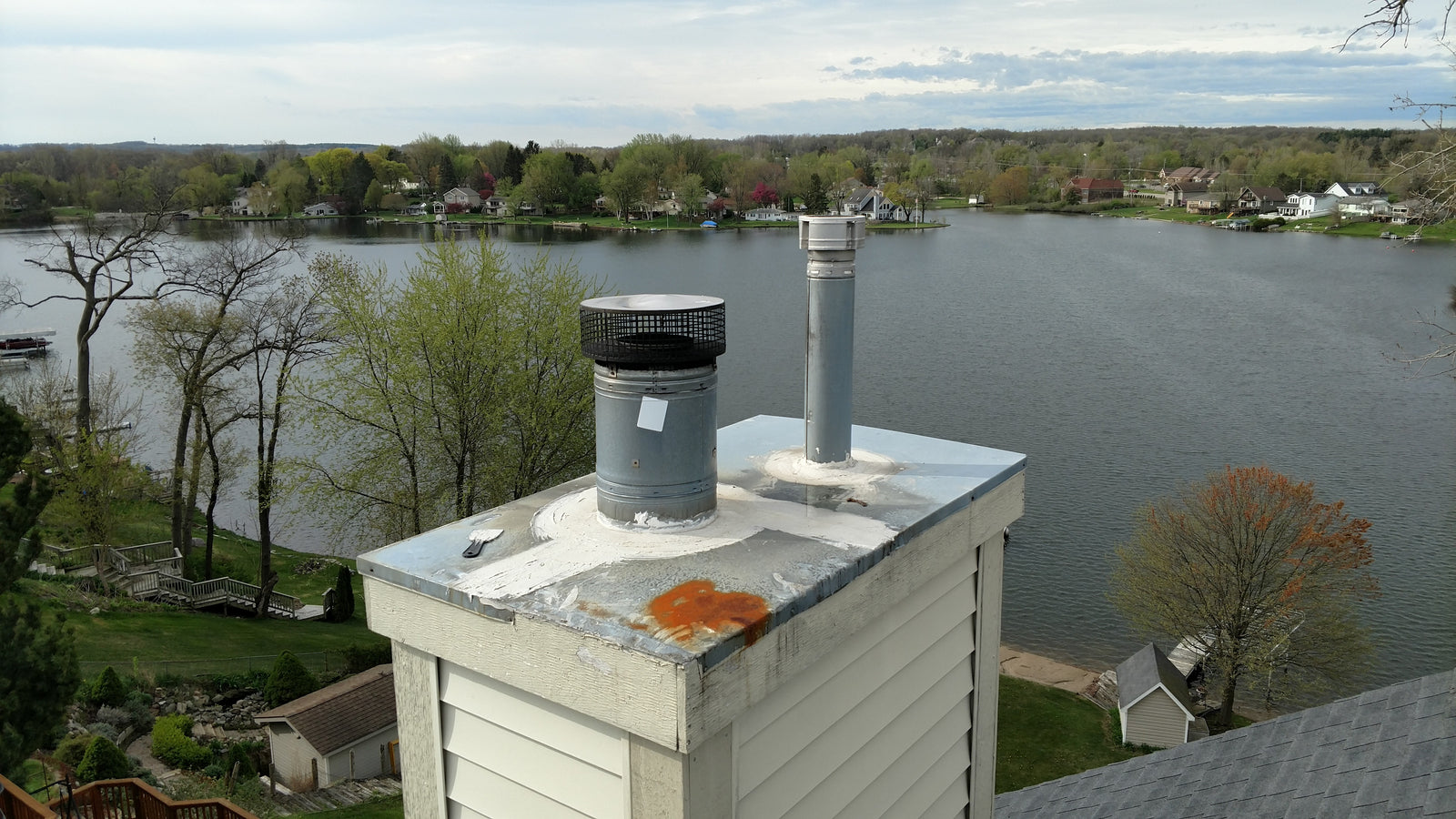Chimney Caps and Chimney Covers - What's the Difference?
July 19, 2023

In the construction world there are two types of chimneys, a traditional brick and mortar chimney and a wood framed chimney chase. Both should have a chimney cover and a chimney cap. Covering the top of your chimney is an important thing to do to prevent costly damage caused by the elements. At the top of every chimney are two parts, the chimney crown and the chimney flue. These two parts can often get confused. Understanding the differences between a chimney cap and a chimney cover will make purchasing what you need much easier.
Chimney Cover
The primary function of the chimney cover is to seal off the top of the chimney while allowing the flue pipe to pass through it. For a traditional masonry chimney, the chimney cover is traditionally a masonry chimney crown. This type of chimney cover is raised at the center where the flue comes through and is sloped down on all sides to provide water run off. The downfall to this style of cover is that it is apt to crack after a short time. When a crack happens at the top of a chimney, it is important to get a chimney cover sooner rather than later. Water leaking at the top of a chimney can cause structural issues to the chimney. The first sign of this is sprawling bricks. A stainless steel chimney cover is the ideal repair for this. A stainless steel chimney cover will never rust and it will ensure your brick chimney is free of moisture.
For a wood framed chimney chase, there is a steel cover at the top with a hole to allow the flue pipe to pass through. These are often fabricated with low grade steel that will eventually rust out and allow water to enter the inside of the wood chase. The first sign of deterioration is rust running down the side of your chimney. Just like a brick chimney, a stainless steel chimney cover is the ideal fix. Trying to patch a rusted chimney cover with tar or sealant is only masking the problem and any leaks are sure to return.
Chimney Cap
A chimney cap's primary function is to attach to the flue pipe to allow the exhaust gasses to exit the chimney flue and prevent any rain from entering inside the flue. For some reason, when brick chimneys get constructed, a chimney cap is seldom installed with it. Chimney caps for brick chimneys often get called by a few different names such as spark arrestor, chimney rain cap, flue cap, and animal guard. It is crucial for brick chimneys to have a chimney cap. Leaving a brick chimney flue uncapped will only caused greater problems in the future. Rain water will inevitably wash out the mortar joints that holds the flue together causing the flue to be unusable. For this type of chimney there are a few different options to select from based on your chimney. If your chimney only has one flue, a single flue chimney cap is the perfect option. A single flue chimney cap will sit on your existing flue and have a flange that will overhang the flue. On the sides of the flange there is four or more bolts attached to the cap to pressure fit the chimney cap to the flue. Another option is a multi flue chimney cap. Most multi flue chimney caps are made custom to your specific chimney. When you are selecting a chimney cap, just remember the cap is for the flue.
A wood framed chimney will require a chimney cap that will match the type of flue that is installed. When a flue pipe is put inside a wood framed chimney chase, this is known as an engineered chimney. This type of flue pipe was tested rigorously to allow the hot pipe to be close to wood framing. There are two different types of chimney pipes for this, insulated chimney flue pipe and air cooled chimney flue pipe. Identifying which pipe you have is the first thing to do when purchasing a chimney cap. An air cooled chimney will have a visible air gap between two or three pipes. An insulated chimney pipe will appear as a solid flue pipe and appear to be one pipe, when there is actually two pipes with insulation in the middle. It is important to select the right chimney cap for this style of chimney pipe. Purchasing the wrong chimney cap can result in danger. Please contact us with any questions!
The only thing to remember when deciding if you need a chimney cap or chimney cover is that a chimney cap will get attached to the flue and a chimney cover will attach to the chimney itself. Making sure both the chimney cap and chimney cover are in good working order will prevent any costly repairs in the future.
DIY Center
(AKA ‘The Rockford Files’)
From video tutorials to product walkthroughs, we have a variety of DIY resources just for you! Click the button below to view our entire library.








